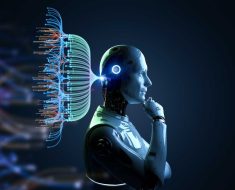Rheumatic heart disease (RHD), a severe consequence of untreated strep throat, affects approximately 40 million people worldwide and causes almost 300,000 deaths per year. Diagnosing RHD accurately and early is crucial, especially in children, as it can prevent severe complications and improve quality of life. However, it is often diagnosed late due to a lack of access to medical services and the complexity of the disease. Fortunately, recent advancements in technology have brought forth new hope in the form of Artificial Intelligence (AI) for diagnosing RHD.
AI and Machine Learning in Healthcare
AI and machine learning have been making waves in the healthcare sector, from predicting disease outbreaks to personalizing patient care. One of the most significant developments is its application in diagnosing diseases, especially those that require complex interpretation of medical images, such as RHD.
Study Findings
A recent study published in the Journal of the American Heart Association suggests that machine learning and deep learning models can accurately identify mitral regurgitation, a key sign of RHD, on pediatric echocardiograms. The study involved the evaluation of 511 pediatric echocardiograms and color Doppler images of the mitral valve using these models. The results were promising, showing high accuracy in identifying the correct view and systolic frame, as well as detecting RHD.
AI’s Role in Early Detection
In terms of early detection of RHD, AI models present an exciting opportunity. The researchers emphasize that AI could play a significant role in widespread echocardiography diagnosis of RHD, particularly by non-physician healthcare workers. This could potentially revolutionize the way RHD is diagnosed, especially in regions where access to specialized healthcare is limited.
Challenges and Future Research
However, despite these promising results, there are still challenges to overcome. Accurately diagnosing mitral regurgitation in children is a complex task, and more research and validation of these models in clinical settings are needed. Several studies have highlighted the need for further development and testing of these AI algorithms to improve their accuracy and generalizability.
The Promise of AI in Diagnosing RHD
Despite the challenges, the potential of AI and machine learning models in improving the diagnosis of RHD is undeniable. These models could provide a faster, more accurate, and more accessible method of diagnosing RHD, helping millions of children worldwide. This study is significant as it is the only clinical work to date that looks at automated measurement of mitral regurgitation length and novel mitral regurgitation jet analysis, combining machine learning and deep learning methods to diagnose RHD.
In conclusion, the use of AI in healthcare continues to evolve, bringing significant advancements in disease diagnosis and management. As technology continues to advance, so does the promise of improved patient outcomes, particularly for conditions like RHD, where early detection can mean the difference between life and death.
![[2308.13507] Large Language Models Should Ask Clarifying Questions to Increase Confidence in Generated Code [2308.13507] Large Language Models Should Ask Clarifying Questions to Increase Confidence in Generated Code](https://aigumbo.com/wp-content/uploads/2023/12/arxiv-logo-fb-235x190.png)



